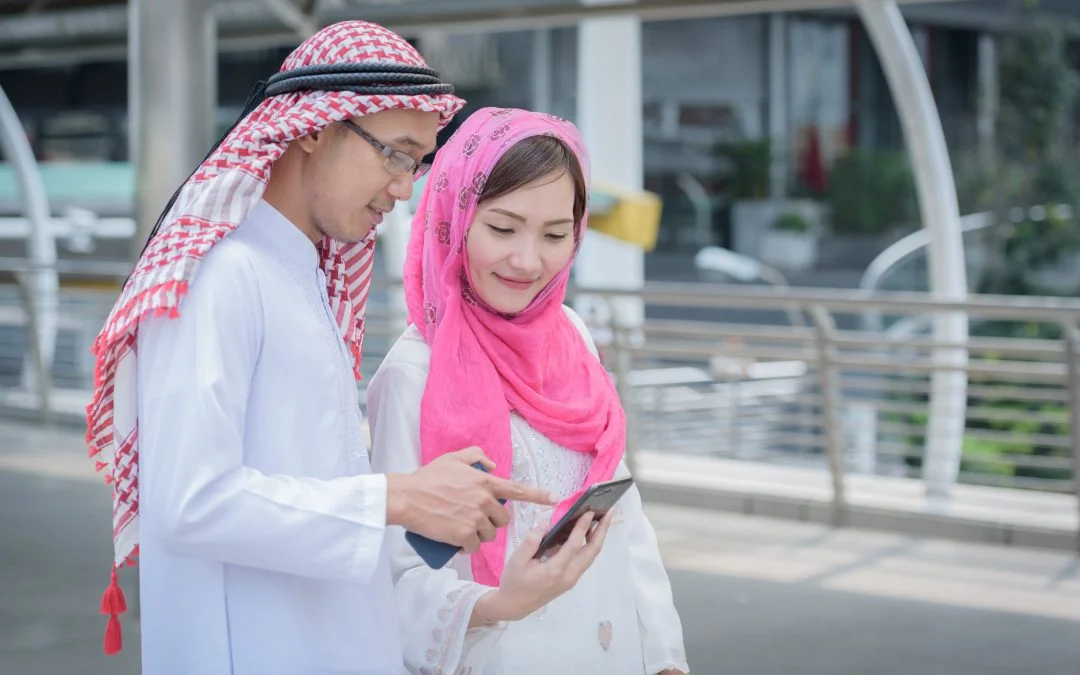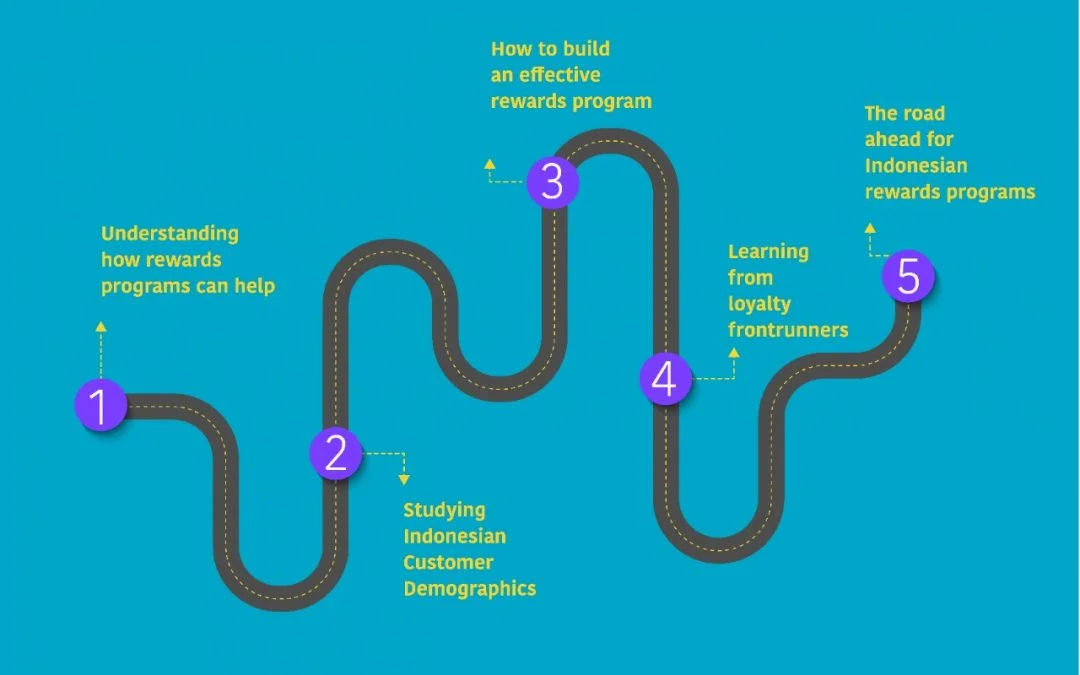- Design industry shaping loyalty programs
- Integrate easily and go live quicker
- Deliver hyper-personalized consumer experiences
Blue Rewards from Al Futtaim Group Shares Loyalty Success Stories and Evolution. Watch Podcast >
Capillary Announces 2nd Annual Captivate 2025 Summit: Transforming Loyalty Management with New AI Tech Read more >

Indonesia, the largest country in Southeast Asia, boasts a population of approximately 278.7 million people as of January 2024. This vast and diverse market has become a focal point for major brands, business conglomerates, and investors, driven by several key factors that define consumer trends in Indonesia.
Indonesia’s middle-class segment continues to expand, contributing to increased consumer spending and demand for diverse products and services. This growth reflects the broader Indonesian consumer trends of rising disposable income and aspirational purchasing.
With a median age of 30.0 years, Indonesia’s population is notably young. Approximately 66.5% of the population falls between the ages of 15 and 64, indicating a substantial workforce and consumer base in their prime spending years. Youth-driven trends are shaping the market significantly, influencing preferences for technology, personalization, and digital interactions.
As of January 2024, Indonesia had 185.3 million internet users, representing an internet penetration rate of 66.5%. Mobile connectivity is particularly significant, with 353.3 million cellular mobile connections, equating to 126.8% of the population. This underlines the importance of mobile-first strategies to tap into Indonesian consumer trends, especially when paired with tools like loyalty program software for better engagement. Check out Capillary’s robust loyalty software – Loyalty+.
Indonesia’s e-commerce market is the largest in Southeast Asia, valued at approximately USD $82 billion. This growth has been accelerated by the global pandemic, which shifted consumer behavior towards online shopping. Brands leveraging loyalty software to enhance customer retention stand to gain significantly in this space.
The e-commerce sector in Indonesia is projected to continue its robust expansion, with forecasts estimating a gross merchandise value (GMV) of approximately USD $160 billion by 2030. This trajectory highlights how consumer trends in Indonesia are paving the way for brands to innovate and invest in digital strategies.
Indonesia’s retail sector remains one of the most promising markets in Asia, with a market size of $42.34 billion as of 2023. However, like many Southeast Asian markets, it is highly competitive and fragmented, with dominant players like Indomaret and Alfamart.
A study by SurveySenum found that 67% of customers in Indonesia switch brands not because of price or features but due to a lack of good customer experience. This highlights the significance of addressing Indonesian consumer trends, where personalization and experience are pivotal.
To thrive in this environment, brands often engage in price wars and discounts, which can erode profit margins. For sustainable success, retailers should focus on enhancing customer experience through personalized, omnichannel engagement, loyalty program enhancements like gamification, social commerce enablement, and world-class after-sales support. Adopting robust loyalty software can help brands capture the interest of digitally savvy consumers while staying ahead in the competitive landscape.
With over 185.3 million internet users and 139.0 million social media users as of January 2024, Indonesia presents a vast digital audience. Social media platforms are integral to daily life, serving as tools for communication, news, and entertainment. The most popular platforms include YouTube, WhatsApp, Facebook, Instagram, and Line. These platforms are key to understanding consumer trends in Indonesia and reaching a broad yet engaged audience.
Indonesians are also heavy mobile internet users, with a significant preference for smartphones over desktops for online activities. This mobile-first behavior is crucial for marketers, especially when integrated with loyalty program software that delivers seamless and personalized experiences.
The continuous growth of the middle-income segment is leading to more sophisticated consumer behavior. These tech-savvy, channel-agnostic consumers expect personalized experiences in real-time across various platforms, including email, SMS, social media, websites, and mobile apps.
While adopting new technologies and platforms, brands should focus on how these innovations enhance the customer experience. Here are the top five consumer trends in Indonesia shaping customer engagement. Up your customer engagement game with Capillary’s Engage+.
Social commerce is gaining momentum in Indonesia due to high social media penetration. Brands are leveraging platforms like Instagram and WhatsApp to sell products through real-time videos and personalized product catalogs. In 2019, 64% of all e-commerce transactions in Indonesia occurred through social media, a trend further accelerated by the COVID-19 crisis.
Integrating social commerce strategies with existing technologies like loyalty software, marketing automation, and CRM systems is essential for delivering personalized customer experiences.
Indonesia has seen explosive growth in ad blocker adoption, with a staggering 58% of mobile users enabling one or more types of ad blockers. This rate is significantly higher compared to countries like India (28%), China (13%), and the US and UK (1%).
Consumers’ aversion to generic advertising highlights the need for highly personalized interactions that align with their preferences. Utilizing loyalty program software to create meaningful engagement can help brands bypass ad fatigue and foster better connections.
Indonesians utilize a variety of digital platforms daily, including WhatsApp, YouTube, LINE, WeChat, Instagram, Facebook Messenger, email, mobile apps, and SMS. They increasingly judge brands based on interactions across these channels.
Implementing tools like loyalty software and Customer Data Platforms (CDPs) can unify data, enable hyper-personalization, and significantly improve campaign ROI while addressing consumer trends in Indonesia.
Gamified loyalty programs focus on non-purchase aspects of customer engagement, rewarding digital consumers for social actions like reviews, comments, shares, and retweets. These programs align with Indonesian consumer trends, catering to modern consumers seeking recognition and engagement beyond transactional rewards. Check out Capillary’s Rewards+.
With high smartphone penetration, brands are experimenting with Wi-Fi beacons and granular IP addresses to deliver location-based promotions and offers. This trend is expanding from shopping malls to single-brand outlets and large department stores.
Utilizing location data alongside loyalty program software enables brands to improve their social media strategies and deliver personalized, location-aware offers.
In a world where savvy consumers are constantly seeking the best value, brands need to stand out by sharing their stories in a genuine and compelling way. Yet, building a strong brand presence online has become increasingly difficult, with countless competitors vying for attention and engagement.
To break through the noise, brands must focus on delivering highly personalized content that resonates with their audience. A powerful approach is to craft unforgettable experiences that consumers can cherish and share with their loved ones. When an experience leaves a positive and lasting impression, it naturally sparks conversations, turning happy customers into enthusiastic advocates for your brand.
While Indonesia’s geography and fragmented topography render it unique, the audience shares similar behavior and aspirations as other emerging markets in Asia. The winning playbook for brands lies in understanding consumer trends in Indonesia, investing in AI-powered digital technologies, analytics, and loyalty software, and seizing the opportunity to engage customers in highly personalized ways to improve brand loyalty and sales. Talk to our Loyalty Experts to learn more about Capillary’s Loyalty+ platform.
Indonesia’s key consumer trends include growing middle-class consumers, increasing mobile and internet penetration, a young demographic, and a rise in e-commerce and social commerce adoption.
Loyalty program software helps businesses engage digitally-savvy customers by offering personalized rewards, gamification, and seamless omnichannel experiences, aligning with the latest Indonesia consumer trends.
Social commerce is booming, with platforms like Instagram and WhatsApp being widely used for personalized shopping experiences. Nearly 64% of e-commerce transactions in Indonesia occur through social media.
Loyalty software enables businesses to create tailored customer experiences, foster deeper engagement, and enhance brand loyalty by integrating tools like gamification, real-time rewards, and omnichannel support.
By leveraging loyalty program software, adopting AI-powered personalization, and tapping into trends like social commerce and mobile-first strategies, businesses can stand out in Indonesia’s competitive retail market.

December 18, 2024 | 4 Min Read
Discover how to design a customer-centric rewards program in

December 22, 2024 | 8 Min Read
While Indonesia's geography and fragmented topography render